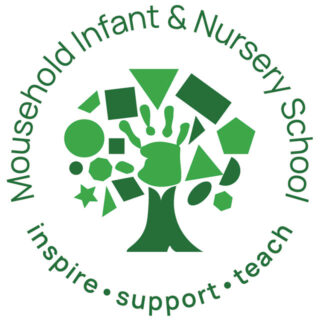“A computer is like a violin. You can imagine it making beautiful music, but you have to learn how to play it.”
Bill Gates
How is computing taught at Mousehold Infant and Nursery School?
Computing at Mousehold equips children with a solid foundation of skills and knowledge needed to participate in the rapidly changing digital world. Through our computer science lessons, children develop creativity, resilience, problem-solving, and critical thinking skills. Computing cross-curricular opportunities allow children to use their ICT skills to enhance their learning and give it a real purpose. Children become confident digital citizens who use technology in a socially responsible and safe way to understand themselves as individuals within their community and as members of a wider global citizen.
The computing curriculum consists of Computer Science, IT, and digital literacy and is supported by quality texts. Mousehold uses the National Center for Computing Education (NCCE) to ensure coverage of the computing curriculum, with NCCE’s Teach Computing as the basis for our planning. There are five concepts covered in KS1 computing at Mousehold: Computer Networks and Systems, Creating Media, Data and Information, and Programming. Each learning outcome is based on these concepts. The curriculum is written to support pupils of all abilities, with lessons sequenced so that learning builds upon the previous lesson. Activities are scaffolded so that all pupils can succeed and thrive. The units for key stages 1 and 2 are based on a spiral curriculum. This means that each theme is revisited regularly (at least once in each year group), and pupils revisit each theme through a new unit that consolidates and builds on prior learning within that theme. This curriculum design reduces the amount of knowledge lost through forgetting, as topics are revisited yearly
Pupils develop curiosity, enjoyment, and confidence to succeed in the digital world of today. Impact is measured through monitoring by the subject leader and formative and summative assessments within lesson time, including teacher observation, discussion, child voice, questioning, and marked activities.
Online Safety:
Through our Computing curriculum, children are taught to:
- Use technology safely and respectfully
- Keep personal information private
- Identify where to go for help and support when they have concerns about content or contact on the internet or other online technologies.
Alongside computing lessons, online safety is taught through digital literacy using ‘Project Evolve,’ and we celebrate Safer Internet Day every year. Online safety is also addressed through whole-class discussions, where deemed appropriate by the class teacher, as part of our safeguarding procedures.


